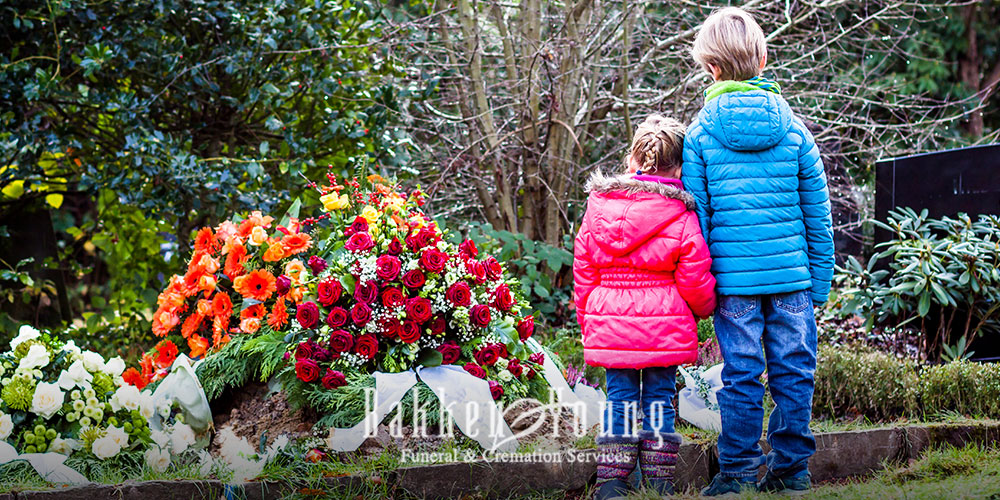by Chaplain Julia Rajtar, MAPS, BCC
During the pandemic, the gathering ritual of a funeral, celebration of life, or service of remembrance was suspended for the safety and well-being of the bereaved and funeral staff. It may have been one of the more eye-opening moments when we, society, realized the value of some type of ritual where we gather to remember, honor, celebrate our deceased, and the importance of that sense of community and support. The funeral provides the opportunity for the bereaved to find connection to others and to begin the process of adapting to their loss(Lucke, Gilbert, & Barrett, 2006).
Parents and Caregivers struggle with the decision to have children and teens attend the funeral. If children do attend, how much should the children be involved if at all? Children should be offered the opportunity to both attend and participate in the funeral and end-of-life rituals with their family and community. They should have a choice. Research demonstrates that children who attended funerals find them beneficial (Silverman & Worden, 1992). Families whose children are not permitted to attend the funeral are less well over time than children who were able to attend the funeral(Fristad, Cerel, Goldman, Weller, & Weller, 2001). During this time, one of the most helpful things caregivers or parents can do is give children choices.
Like most adults, children do better when they know what to expect. Preparing children for a funeral is important. Without preparation, children’s minds fill in the blank of what a funeral may be like based upon what they may have seen on tv or what they imagine a funeral is like. Children don’t like being left out of anything. The funeral is a meaningful and important experience for them to have the opportunity to memorialize or honor the person who died, in a way that feels right to them.
Preparing children begins with having the parent or trusted adult sit down and talk with the children. The conversation includes things like:
- Explaining the purpose of the funeral
- What types of things they are likely to see at the funeral
- Going over the planned schedule of events
- What is their role, where will they sit?
- Can the child/teen leave if they need to? If so, who will be available to go with them?
If possible, children and teens should be allowed to participate in the funeral in some way. They could be encouraged to: write a letter to the person who died, asked if they have a special object they would like included in the casket. They could be asked to write a few words to share about the person who died and what the person meant to their life.
With Bakken-Young your funeral director, Brian, Jodie or Matt, can provide resources to help you hold this conversation with your children & teens, and help you as you offer choices to them in attending and participating in the rituals after death.
Resource:
Understanding and Supporting Bereaved Children, a Practical Guide for Professionals, Springer Publishing Company, McNiel, Andy/Gabbay, Pamela


Add Comment